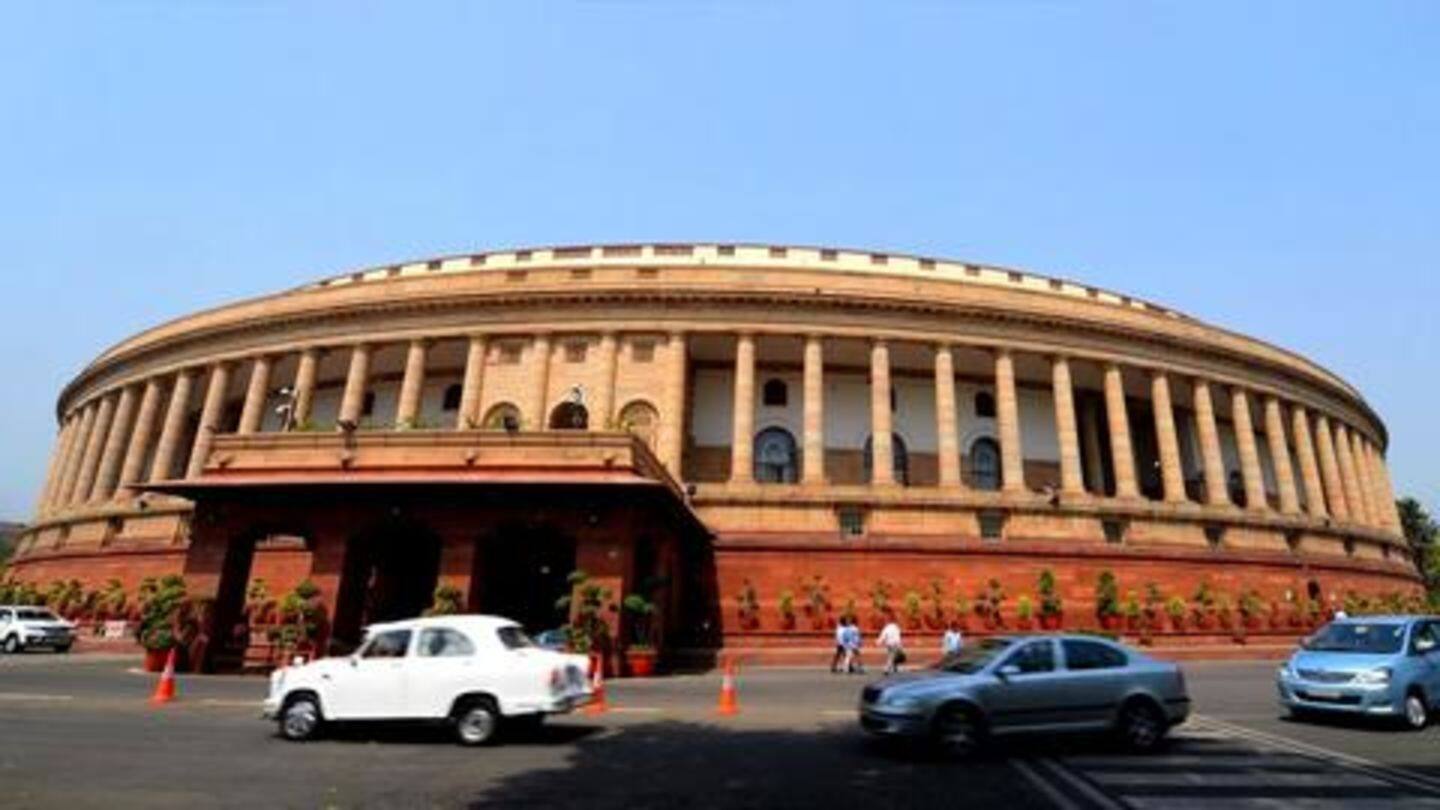
Right to Information (Amendment) Bill passed in Lok Sabha
What's the story
The Lok Sabha has passed the Right to Information (Amendment) Bill, 2019, which seeks to amend the RTI Act, 2005 amid criticism from the Opposition on Monday.
The Opposition alleged that the Bill is intended to weaken the 2005 Act. The Center, however, rejected the criticism, saying that the proposed amendments are aimed at streamlining the functioning of the transparency law.
Here's more.
Information
178 members voted in favor of the Bill: Speaker
According to Lok Sabha Speaker, Om Birla, the RTI (Amendment) Bill, 2019 was passed with 178 members voting "yes" in favor of the same while 79 members voted "no" against it. The Opposition protested that the Bill will eliminate the independence of RTI authorities.
The Bill
Minister Jitendra Singh tabled the RTI (Amendment) Bill in LS
The RTI (Amendment) Bill was introduced in the Lok Sabha on Friday by the Minister of State for Prime Minister's Office, Jitendra Singh, amid the Opposition's protests.
Tabling the Bill, he said that the proposed changes are aimed at the institutionalization, streamlining, and ease of delivery of the RTI Act, adding that the Bill would strengthen the RTI structure.
Information
The Bill amends Sections 13, 16 of RTI Act
The RTI (Amendment) Bill, 2019 amends Sections 13 and 16 of the RTI Act, 2005. It proposes to give certain powers to the Center to set the service conditions as well as salaries for the Information Commissioners at both central and state levels.
Section 13
What does Section 13 of the RTI Act say?
According to Section 13 of the RTI Act, 2005, the term of central Chief Information Commissioner (CIC) and Information Commissioners (ICs) is set at five years or until the age of 65 (whichever is earlier).
It also says that central CIC's salaries/allowances/services shall be same as that of the Chief Election Commissioner while those of ICs shall be same as that of Election Commissioners.
Section 16
Section 16 of RTI Act deals with state-level CICs, ICs
Section 16 of the RTI Act deals with CICs and ICs at the state-level. It sets the service-term of state-level CICs and ICs at five years or until age 65 (whichever is earlier).
According to it, salaries, allowances, and other service terms of state-level CICs and ICs shall be the same as that of Election Commissioner and Chief Secretary to the state government, respectively.
Amendments
What does the RTI (Amendment) Bill propose?
The RTI (Amendment) Bill proposes that the appointment or term of central and state level CICs and ICs will be "for such term as may be prescribed by the Central Government."
The Bill also proposes that the salaries, allowances, and other terms of services of the central and state CICs and ICs "shall be such as may be prescribed by the Central Government."